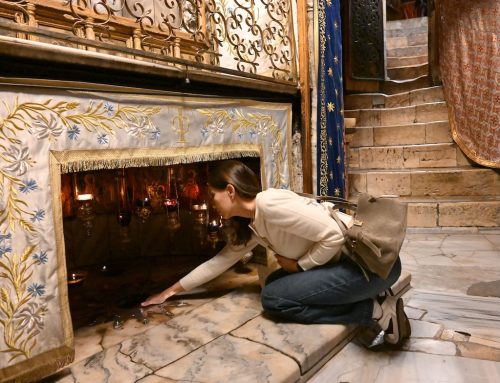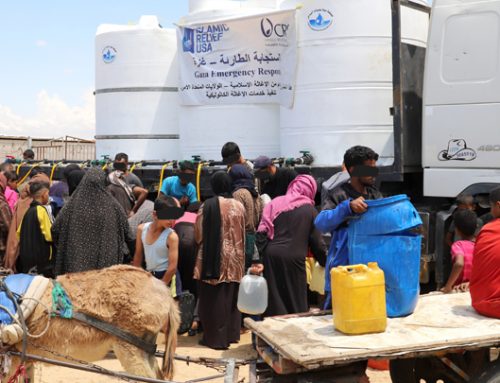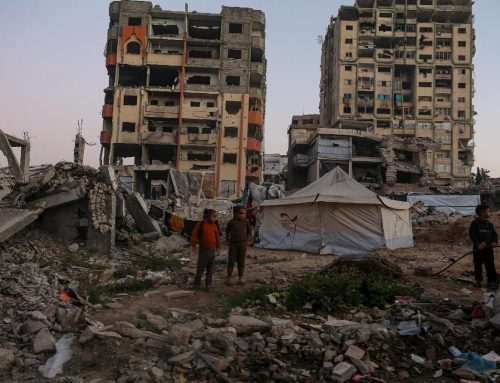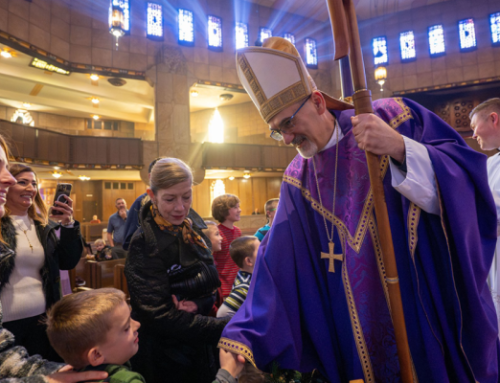After his historic meeting on Monday with Pope Francis in the Vatican, the Grand Imam of Egypt’s al-Azhar mosque said the “rivers of blood” in the Middle East must end, and warned that if terrorism is allowed to fester, East and West “will suffer together.”
“Today I am in the heart of Europe, and I would like to make the most of my presence in this institution, so great for Catholics – the Vatican – to launch an appeal to the entire world so that it can unite and close ranks to confront and put an end to terrorism,” said Sheikh Ahmed el-Tayeb.
The al-Azhar mosque and university complex in Cairo, Egypt, is generally considered the highest authority in the roughly 1.3 billion-strong Sunni Muslim world.
“This is my appeal to the world and to the freemen of the world: to come to an agreement immediately and to intervene to put an end to these rivers of blood,” el-Tayeb said in an interview with Vatican Radio and the Vatican newspaper L’Osservatore Romano.
El-Tayeb also said that Islam has “nothing to do with this terrorism,” and that those who kill Muslims and Christians have misunderstood the text of Islam, either intentionally or by negligence.
The Grand Imam also spoke about a conference organized in Al-Azhar last year, after which Muslim and Christian leaders made an appeal to not confuse terrorist organizations with Muslims.
“We said with one voice, Muslims and Christians, that we are the masters of this land and we are partners, and each one of us has a right to this land,” el-Tayeb said. “We have rejected forced emigration, slavery and the trade in women in the name of Islam.”
The imam also said that the current violence in the Middle East shouldn’t be portrayed as “persecution of Christians” because the largest number of victims are Muslim, and that if anything, the two are “suffering this catastrophe together.”
He called the world not to blame religions due to the “deviations of some of their followers,” because in every creed there’s a deviant faction that uses religion as an excuse to kill.
El-Tayeb also said that religious leaders have the responsibility to “give humanity a new direction” towards mercy and peace to “avoid the great crisis we are suffering now.”
This crisis, he argued, is the result of “the philosophies and modern social ideologies” which have taken humanity far from religion, failing “to make man happy or to take him far from wars and bloodshed.”
“Man without religion constitutes a danger to his fellow man, and I believe that people now, in the 21st century, have started to look around and to seek out wise guides to lead them in the right direction,” el-Tayeb said.
Pope Francis delivers his blessing during the Angelus noon prayer he celebrated from the window of his studio overlooking St.Peter’s Square, at the Vatican, Sunday, May 22, 2016. Francis, addressing tens of thousands of tourists and pilgrims in St. Peter’s Square Sunday, expressed his hopes for an humanitarian summit opening the next day in Istanbul. (AP Photo/Andrew Medichini)
Pope lays out aggressive vision for UN summit
Sheik Ahmed el-Tayyib, Grand Imam of Al-Azhar Mosque, talks with Pope Francis during a private audience in the Apostolic Palace, at the Vatican, Monday, May 23, 2016. (Max Rossi/Pool photo via AP)
Pope says of get-together with Imam, ‘The meeting is the message’
It’s this need for religions to work together what has led to his visit to the Vatican, the first for any Gran Imam of Al-Azhar, though John Paul II had visited the study house back in 2000.
Talking about Pope Francis, the imam defined him as “a man of peace” who follows the teachings of Christianity, “which is a religion of love and peace.” The pontiff, he added, is also someone who respects other religions and their followers, and also someone who “takes responsibility for people in general.”
The encounter between the two religious leaders, who combined amount to 2.5 billion followers, took place on Monday in the Vatican. It marked the resumption of a dialogue between al-Azhar and the Vatican after a five-year suspension.
“The meeting is the message,” the pope said upon encountering the imam for the first time.
Source: shafaqna






